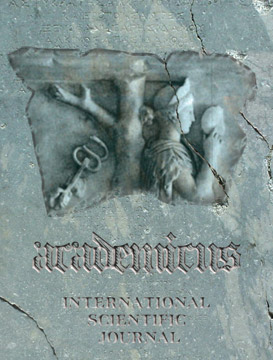Title:
Cross borders companies and worldwide industry management
Full Reference List:
| 1. | Altbach, G, & Knight, J. (2007). The Internationalization of Higher Education. Motivations and Realities. Journal of Studies in International Education, 11, pp. 290–305. |
| 2. | Andersen, O. (1997). Internationalization and market entry mode: A review of theories and conceptual frameworks. Management International Review, 37, pp. 27-42. |
| 3. | Ariu, A. (2016). ‘Services versus goods trade: a firm-level comparison.’ In: Review of World Economics, 1, pp. 19–41. |
| 4. | Baldwin, R, & Freeman, R. (2021). Risks and global supply chains: What we know and what we need to know. NBER Working Paper No. 29444. |
| 5. | Barber, J, & Ghauri, P. (2012). Internationalization of service industry firms:Understanding distinctive characteristics. Service Industries Journal - SERV IND J, 32, pp. 1-4. |
| 6. | Bell, J. (1985). The internationalisation of small computer software firms: A further challenge to “stage” theories. European Journal of Marketing, 29, 60-75. |
| 7. | Belniak, M. (2015). ‘Factors Stimulating Internationalisation of Firms: An Attempted Holistic Synthesis. Entrepreneurial Business and Economics Review, 2, pp. 125-140. |
| 8. | Cuervo-Cazurra, A. (2007). Sequence of value-added activities in the internationalization of developing country MNEs. Journal of International Management, 13, 258-277. |
| 9. | Ditta, G. (2020). Internationalization and Human Resource Management. Academicus International Scientific Journal, 11(22), 30-40. |
| 10. | Doh, J. (2005). Offshore outsourcing: Implications for international business and strategic management theory and practice. Journal of Management Studies, 42, pp. 695-704. |
| 11. | Dunning, J. H. (1995). Reappraising the eclectic paradigm in an age of alliance capitalism. Journal of International Business Studies, 26, pp. 461-493. |
| 12. | Ekeledo, I, & Sivakumar, K. (1998). Foreign Market Entry Mode Choice of Service Firms: A Contingency Perspective. Journal of the Academy of Marketing Science, 4, pp. 274–292. |
| 13. | Forsgren, M. (2002). The concept of learning in the Uppsala internationalization process model: A critical review. International Business Review, 11, pp. 257- 278. |
| 14. | Freund, C, & Weinhold, D. (2002). The Internet and International Trade in Services. American Economic Review, 92, pp. 236–240. |
| 15. | Harvey, D. (2000). Time-Space, compression and the postmodern condition. The global Transformation Reader, 10, pp. 82-99. |
| 16. | Hunya, G. (2021). Fragile post-COVID FDI bounce-back in CESEE. Monthly Report, 11, pp. 9-15. |
| 17. | Javorcik, B. (2020). Global supply chains will not be the same in the post- COVID-19 world. COVID-19 and Trade Policy: Why Turning Inward Won’t Work, pp. 111-116. |
| 18. | Malnight, T. (1995). Globalization of an ethnocentric firm: An evolutionary perspective. Strategic Management Journal, 16, pp. 119-131. |
| 19. | Manta, O. (2020). Nothing for us without us” Measures applied at European level during the current crisis. Journal for Freedom of Conscience, 2, pp.13-15. |
| 20. | Manuelli, R.E, & Seshadri, A. (2014). Human capital and the wealth of nations. American Economic Review, 9, pp. 2736-2762. |
| 21. | Mookherjee, D, & Napel, S. (2007). Intergenerational mobility and macroeconomic history dependence. Journal of Economic Theory, 137, pp. 49- 78. |
| 22. | Musaraj, A. (2020). The Pandemic and Rhetoric of Organization. Academicus International Scientific Journal, 11(22), 21-29. |
| 23. | Profita, S. (2019). Slowbalization and its risks. Columbia University working paper. New York, NY: Columbia University. |
| 24. | Restuccia, D, & Rogerson, R. (2017). The causes and costs of misallocation. Journal of Economic Perspectives, 31, pp. 151-174. |
| 25. | Rodtook, P, & Altinay, L. (2013). Reasons for Internationalization of Domestic Hotel Chains in Thailand. Journal of Hospitality Marketing & Management, 22, pp. 92–115 |
| 26. | Rugman, M. (2010). Reconciling Internalization Theory and the Eclectic Paradigm. Multinational Business Review, 18, pp. 1–12. |
| 27. | Stroebe, W, & Frey, B.S. (1982). Self-interest and collective action: The economics and psychology of public goods. British Journal of Social Psychology, 21, pp. 121-137. |
| 28. | Sparapani, E, & Callejo, D. (2015). A Perspective on the Standardized Curriculum and Its Effect on Teaching and Learning. Journal of Education, 2, pp.10. |
| 29. | Stoker, G (1998). Governance as theory. International Social Science Journal, 155, pp.17–28 |
| 30. | Teece, David J. (2021). A dynamic capabilities-based entrepreneurial theory of the multinational enterprise. Journal of International Business Studies, 3, pp. 31. |
| 31. | Vernon, R. (1966). International investment and international trade in the product cycle, Quarterly Journal of Economics, 80, pp. 190-207. |
| 32. | Zaheer, S. (1995). Overcoming the liability of foreignness. Academy of Management Journal, 38, pp. 341-363. |
Back to article
Academicus
International Scientific Journal
pISSN 2079-3715
eISSN 2309-1088
Address:
Sheshi i Flamurit, Rruga Muze
Al-9401 Vlorë, Albania
Tel: +355 68 60 60 555
info@academicus.edu.al
https://academicus.edu.al


